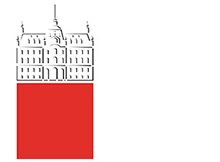The aim of the doctoral education in the scientific field of Economics of Natural Resources is to provide doctoral candidates for state-of-the art research work that connects ecological, social, and economic aspects of the bioeconomy at both micro and macro levels.
It develops an interdisciplinary researcher profile capable of integrating and enhancing knowledge from applied life sciences (basic natural science knowledge, biological sciences, ecology, engineering skills in production and processing of biological resources) with expertise in economics, business studies, and public policies. The study program addresses research and development challenges related to organizing business processes in conventional (agri-food, forestry-wood) and extended value chains of the bioeconomy in ways that contribute to achieving sustainable development goals. Special emphasis is placed on examining the social dimensions of natural resource management and the role of the state.
The content and methodological approaches of the study program are designed to enable participants to actively engage in international research in relevant scientific or methodological areas. Within the comprehensive methodological course titled Methodology of Economic and Social Sciences in Bioscience, participants become familiar with research planning, data acquisition and processing methods, and the use of fundamental quantitative and qualitative methodological approaches specific to the scientific field of Economics of Natural Resources. Methodological knowledge can be further deepened through three additional methodological courses. In addition to Mathematical Models and Operations Research in Biosciences and Multivariate Statistical Methods, we have added the course Behavioral Research in Economics and Environmental Social Sciences, which trains participants to address research challenges using experimental economics approaches.
In terms of content, the study program aims to unveil both, the complexity and the particularities of current research topics within the Economics of Natural Resources. The foundational course titled Bioeconomy, Innovations, and Systems Management in Biotechnology fosters an understanding of the complexity and interconnectedness of the economic system, society, and natural resources in bioeconomy-related industries. The course Economic and Sociological Aspects of Rural Development provides additional insights into theoretical foundations and models necessary for in-depth research on interactions within socio-ecological systems. Course Digitalization in Business Process Management in Bioeconomy bridges competencies related to managing business processes with the increasing need for effective integration of modern information technologies. Lastly, Consumer Behavior and Marketing Strategies in Bioeconomy equips participants with an understanding of specific consumer behaviors related to products and services in the dynamic business environment of the bioeconomy.
| COORDINATOR |
DEPUTY COORDINATOR |
|
prof. dr. Luka Juvančič |
assoc. prof. dr. Damijana Kastelec |


